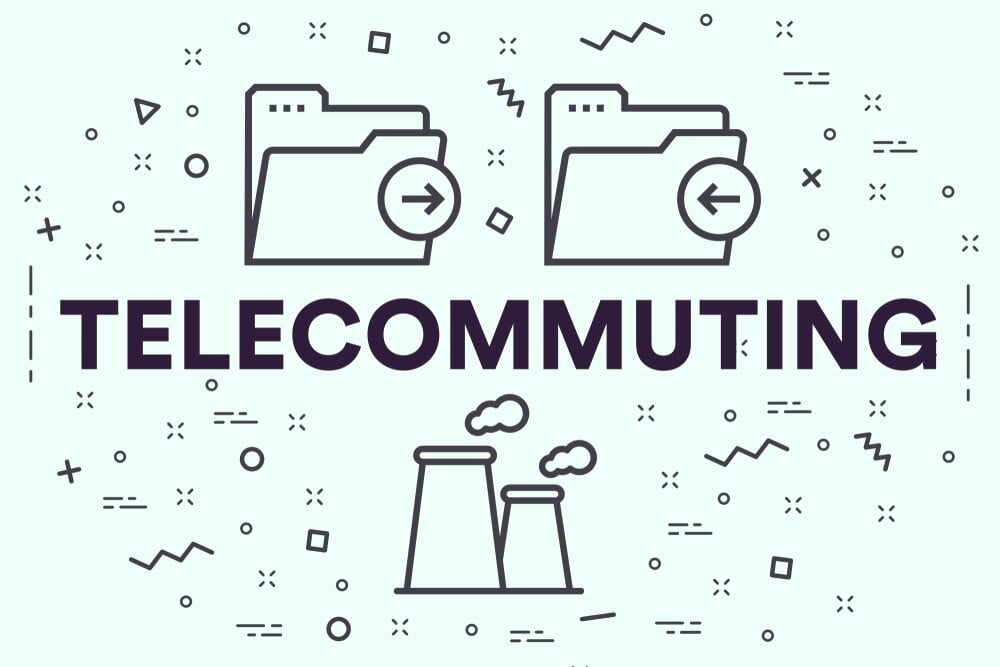In terms of its popularity, remote work is one of the fastest-growing workplace trends of the past several years, and it’s no surprise. Everyone, from employees themselves to the businesses they work for, can benefit from remote work in some way. Telecommuters can save plenty of time and money, but one of the biggest perks is how much telecommuters can save energy.
Working remotely decreases emissions, the number of drivers on the road, and paper usage. But if you’re passionate about doing everything you can to protect the environment, that might not be enough. In fact, you can go even greener when working from home.
Unplug Everything
You’ve heard it time and time again, but unplug all of your electronics when they aren’t in use because they are still using power. Even phone and computer chargers that aren’t connected to a device but are plugged into the wall can still use a small amount of energy. This will also cut back on using unnecessary electronics when you’re trying to focus on work. It may not feel like it has that much of an impact, but everything helps. A little care will go a long way.
Minimize Your Tech
Try to use only the essential devices you need to do your job. Do you really need to use a monitor, wireless mouse, and keyboard, or will your laptop suffice? Recycle, donate, or store any extraneous technology and only use as much as you need to when working. In addition, be sure the technology that you do have is set to its most energy-efficient settings. Most devices have settings intended to prolong battery life as much as possible, so the device will need fewer charges at less frequent intervals.
Open the Curtains
Turn off the light and open the curtains or blinds in your home. It’s easy to wake up, turn on the lights, and get wrapped up in your work, but take a minute to turn off any unnecessary lights in your home and invite the natural light in. It’s a simple way to make a large difference in your energy use. Not only does embracing natural light save on energy and electricity costs, but recent research has shown that it can even improve your productivity levels on the job.
Go Somewhere Else
Sometimes working from home can make you feel a little stir-crazy. At those times, pack up and head to a nearby cafe or coffee shop. You can get a coffee or lunch and give your home office a break for a couple of hours. The cafe will be in full operation whether or not you’re there, so take advantage of it. Use the change of scenery to stop procrastinating and bolster your productivity while reducing your energy consumption at home.
Take a Break
When it’s time to take a break, be sure to actually take a break. Don’t simply open up your social media accounts or a game on your phone to unwind. Get off of your computer or phone and do something else. Take a short walk, fold some laundry, or play fetch with your dog. Both you and your devices have been working hard, so get away from the screen and do something else for a while.
A Greener Home
Do your best to make your home as green as possible. If your house and life are already more efficient, then your activities during the workday will be too. You don’t necessarily have to make large changes, like installing solar panels or replacing your windows- though you can if you want to. Simple things, such as going paperless whenever possible or hanging clothes to dry instead of putting them through the machine, can still make a huge difference in your daily energy use.
An increasing number of people are telecommuting and their positive environmental impact is larger than ever before. By being environmentally conscious and making an active effort to reduce your energy consumption at home, you can increase that impact even more. Making simple adjustments to make your workday greener can do a lot more than you think.


 Environment12 months ago
Environment12 months agoAre Polymer Banknotes: an Eco-Friendly Trend or a Groundswell?

 Features11 months ago
Features11 months agoEco-Friendly Cryptocurrencies: Sustainable Investment Choices

 Features12 months ago
Features12 months agoEco-Friendly Crypto Traders Must Find the Right Exchange

 Energy11 months ago
Energy11 months agoThe Growing Role of Solar Panels in Ireland’s Energy Future






























